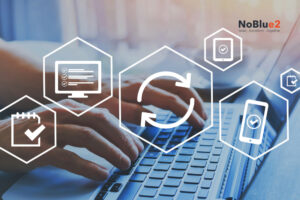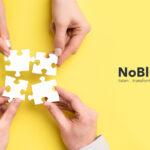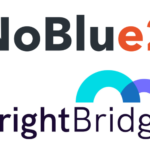When you implement an ERP system and digitise your core business operations, your company and staff need to be able to adapt and innovate.
Although an ERP migration is seemingly just technical in nature, it touches on so much of your business and has a deeply human challenge at its core. Your technological challenges can easily become dwarfed by the natural human tendency to resist change. A company that finds it difficult to embrace change cannot foster a culture primed for innovation.
To succeed with ERP migration, you should view the change not as a disruptive hurdle, but as an opportunity to cultivate a more innovative and adaptable organisational culture. With this mindset, your ERP migration journey will be easier, helping to drive business success in the long term.
Understanding the Challenge of ERP Migration
You have actively chosen to pursue a change and will therefore have clear goals and outcomes for the project. You want an integrated and modern system that will automate and streamline your operations, bringing greater productivity and efficiency.
But it can be a challenging process to transfer all your business data and associated processes from one ERP system to another.
One of the primary challenges in ERP migration is ensuring data integrity and consistency. Migrating vast amounts of data from your old system to the new one requires careful planning and execution. Any discrepancies, missing entries or redundancies can disrupt your business operations and cause errors or even financial losses.
Migration often necessitates some system downtime and this can impact your business continuity. Timing the downtime correctly to ensure it doesn’t disrupt your crucial business functions is a delicate balancing act.
Having grown accustomed to your old system, your employees may resist transitioning to a new one. This resistance is partly about learning a new system and the fear of something that is new and unknown. But there are likely also worries about changes in roles and responsibilities, or even job losses.
A new system will require your staff to adapt and learn new skills. Ensuring that all your employees – across all your departments – are adequately trained can be logistically challenging.
When not well run, your ERP migration project costs can escalate. To manage costs and stick to your budget, the project management team needs to hit its milestones, ensure system downtimes are minimal and make sure that the entire project doesn’t overrun.
It is essential to employ change management practices so that you can stay on top of these challenges. Your ERP underpins your entire business, so any disruptions, delays or failures in the migration process could jeopardise business continuity.
The whole point of migrating to a new ERP system is to gain benefits, in terms of efficiency, productivity, scalability and more. If you do not successfully address these challenges, your anticipated ROI may not be realised.
A smooth ERP migration can boost employee morale, instilling confidence in the company. Conversely, a problem transition can be frustrating and lead to decreased productivity and perhaps increased staff turnover.
The Value of an Innovative and Adaptive Culture
Understanding and addressing the many challenges of ERP migration is a strategic imperative that you should address from a company standpoint. By acknowledging the challenges and developing strategies to overcome them, you can ensure your ERP migration journey is not just about a technology change but is instead a transformative advance for the business as a whole.
Unless you build a culture of innovation and adaptability, your whole ERP migration risks compromising the success of your business. Fostering an innovation mindset can lead to other benefits during the ERP migration.
For example, your staff may identify new opportunities during the process, such as discovering more efficient and effective business processes that you can incorporate into the system.
Having a proactive approach rather than a reactive one engenders an adaptability among your staff. Being flexible makes them open to changes. In essence, the whole ERP migration is a change management project, so being adaptable and flexible helps staff embrace unexpected challenges more positively.
Adaptability can reduce stress about the changes as a whole and therefore ensure fewer problems with the project. As a result, downtime will be minimised and costs won’t spiral.
Steps to Building a Culture of Innovation
In order to get your team on board with the ERP migration, there are some specific steps you can take to build an organisational culture of innovation.
Encouraging regular and open communication is fundamental in helping team members feel empowered to voice their concerns, ask probing questions and suggest solutions. An environment in which communication flows freely not only lessens any misunderstandings, but also generates a sense of collective ownership and trust among staff.
Continuous learning also promotes adaptability during your ERP migration. With a thorough training programme, you can equip staff to use the new ERP system to best effect. Continuous upskilling helps smooth the transition from the old system to the new one and empowers your employees to confidently handle any unforeseen challenges.
Recognising and celebrating small achievements is another way of motivating and fostering an innovation culture. By acknowledging and rewarding your employees’ innovations and ideas and celebrating milestones achieved during the ERP migration, you can keep morale high and encourage everyone to participate positively. These recognitions serve as reminders that progress is being made and unite everyone towards achieving the collective goal.
By strategically building a diverse ERP migration team, you can engender greater innovation. Bringing together staff from across the business, with different skill sets, outlooks and experiences can bring new perspectives and approaches to the fore. This can lead to innovative solutions, helping you navigate the complexities of your ERP migration with a broader and more holistic view.
Navigating ERP Migration Using Innovation and Adaptability
While the technical hurdles of an ERP migration may seem daunting, the human challenges associated with resistance to change often eclipse them. To recognise this, you can approach the project in a way that fosters the appropriate culture of innovation and adaptability.
With this culture, you optimise the ERP migration. Opposition is minimised, problem-solving is encouraged and a sense of collaboration is felt across the company. By cultivating this environment, you can not only ensure the smooth integration of a new ERP system, but also harness its benefits to the fullest.
In the end, your successful ERP migration will be a reflection of not just the flawless operation of your new ERP system, but also of an innovative and adaptive workforce, with staff able to face and overcome challenges and help you to drive future growth and success.
For a smoother ERP migration journey, contact us for a free assessment of how NetSuite can help your business.










